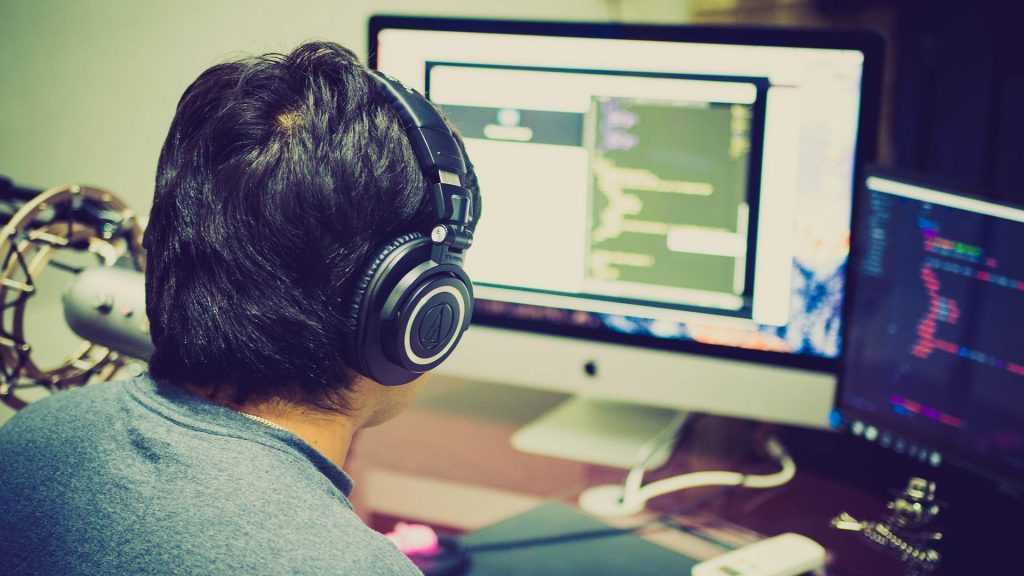Every day, people use the internet for a variety of purposes such as business, school, and pleasure. However, we frequently forget that not long ago, this same internet connection was not as fast or as easily accessible.
Being used to new speeds is beneficial, but it might cause some annoyance when you find internet speed slow on one computer. Is there a workable answer to this issue?
Continue reading to learn all you need to know about what caused sluggish internet in the first place and how to fix it quickly.
Why is my internet slow on one computer but fast on another?
This is one of the most often asked questions, yet the answer is not as straightforward as it may seem. The slow internet connection depends on a variety of factors, which usually need a little more in-depth understanding and a technical background
However, you won’t need any of that because our team is devoted to discovering the best and most efficient ways to assist you with the most difficult challenges and to save you time spent seeking solutions to your problems.
In order to find out why one computer has slow internet, we must first investigate the type of connection used.
The ability to connect wirelessly or through an Ethernet connection is currently available on almost all gadgets and PCs. You may be experiencing issues for a variety of reasons, depending on the sort of connection you have selected:
- Most of the time gadgets are linked to Wi-Fi, since it is more convenient and does not require connecting wires throughout your home. When the router is not properly placed, the Wi-Fi signal is poor, and the bandwidth is overcrowded, this connection might be difficult and slow as a result;
- If you pick Ethernet cable as your preferred method of connecting to the internet, the likelihood of experiencing a sluggish connection is reduced, but it is not eliminated. There is always the possibility of faulty cables, ports, or even drivers on the machine to which you are attempting a connection.
As a result, before attempting any of our ideas, there are a few actions you must follow in order to resolve the slow connection:
- Check what connection is established;
- Call your internet service provider and see if the internet is working fine;
- Perform a speed test on different devices to have something to compare it to;
- Try different devices around the house to rule out potential problems.
Identifying the root reason for slow internet speed on one computer allows us to begin implementing basic yet effective solutions to the problem.

How to fix a computer with a slow internet connection
The most effective method to deal with this issue is to divide and conquer. We will assess the problem based on the type of connection: first, we will determine what the best solution is for wireless connections, then we will move on to Ethernet cable connections – if necessary.
1. Restart all devices
Because a slow internet connection on one device may be caused by small issues on other devices, a thorough restart of all devices is typically sufficient to resolve the issue.
You must switch off both your computer and your router in order for both devices to be able to restart and reconnect to your internet service provider.
Having a stronger connection will help you to play games more efficiently, but this is not always an option when you are in the middle of a session or need to do it regularly.
This is why, if the current recommendation does not resolve the issue, we will provide other ideas.
2. Move the router
A slow internet connection on one computer is almost always caused by a weak Wi-Fi signal.
Because the signal is coming from your router or modem, these devices must be positioned in an appropriate location to ensure that the signal reaches the entire house or workplace.
Avoid placing your router in close proximity to other devices and choose a location that is higher up on the shelf. Even a little shift in the location can make a significant impact on the speed of your internet connection.
3. Change the frequency
After you’ve relocated the router, you should search for available frequencies and select the best one for your PC.
The Wi-Fi network is divided into two bands, one at 2.4GHz and the other at 5GHz. They are both equally necessary for a strong internet connection, although they somewhat differ.
If you want a faster connection on your PC, select the 5GHz band as your preferred band. Keep in mind that, while this frequency helps data to flow quicker, it is limited in range and requires you to be close to the router.
If your PC is far away from the router, though, you may obtain a stronger connection using the 2.4GHz band, which operates well in more remote places.
There is always the possibility of analyzing the bandwidth and determining which one has the least traffic and connecting to that one.

4. Change the channel
There are several channels to choose from on the Wi-Fi network, just as there are two bandwidths. The majority of your home’s gadgets are linked to the 2.4GHz network, and channels there can become congested.
A busy channel indicates a slow internet connection or error 504 Gateway Timeout, therefore it’s a good idea to examine the channels and connect to one that has less traffic.
Consider those channels to be a highway in your city. With fewer cars on the road, you can get to your destination faster. A similar concept may be used to describe channel and internet signal transit.
5. Move closer to your router
You should consider relocating your PC closer to your network if you have the option. This reduces the distance the Wi-Fi signal must travel, allowing you to enjoy a quicker and more consistent internet connection.
Furthermore, if your computer has a USB Wi-Fi card, you may always purchase a longer connection and get as near to your network as feasible.
You’d be amazed how much a few inches can improve your signal strength and internet connection speed.
6. Use Wi-Fi extenders
Sometimes residences and workplaces are so large that even the best router in the greatest position cannot reach the entire area. This is why we recommend investing in high-quality, long-lasting Wi-Fi extenders.
These gadgets will amplify the signal from your router, allowing you to have the best speed across the home.
It is also feasible to build a whole network mesh that will transmit Wi-Fi signals to remote regions of your home and give you a 5GHz frequency everywhere.
7. Switch to Ethernet cable
Now that we’ve identified a couple of remedies for Wi-Fi slow on one computer only, we should discuss a more efficient method of connecting to your network.
When it comes to dependable and fast home internet, we always recommend an Ethernet connection.
This connection will link your computer and router directly, eliminating the need to worry about the device’s proximity and any signal interference.
However, even the finest connections can fail at times, and Ethernet cable is no exception. So we’ll keep working on the issue of the internet being slow on one computer but fast on another when connected through an Ethernet connection.

8. Check Ethernet cable and connectors
When utilizing an Ethernet cable to connect and still experiencing problems with sluggish internet, make sure that the cable and connections are in good working condition.
This implies that there should be no broken or bent sections on the cable, as these might cause the connection to be lost entirely.
Furthermore, the connections must be clean and free of rust in order to function correctly, so check both the port on your computer and the router. If you believe it’s an issue, you may easily switch the port and then another one.
9. Update drivers
Just as the Ethernet connection is in charge of getting the signal to your computer, applications are required to be able to use that signal and effectively connect to the internet.
The programs on the network card are known as drivers, and they must function in order for your connection to be quick.
Outdated drivers are often the most common issue that many people have, and this is easily fixed by downloading the update file and installing it on your device.
Some users claim greater results after completely uninstalling and reinstalling their device’s drivers. This may also work, so give it a shot.
10. Disable VPN or fake IP
Although we appreciate the safe connections that a VPN or a fake IP address provides, we have found that it sometimes causes the internet to slow only on one computer. VPNs link to remote servers in order to connect and conceal your IP address, which takes time.
Even more, time is required if the server you are using is located far away from you, as it requires more time to transmit and receive the correct signal back and forth.
As a result, attempting to connect without a VPN, or at the very least connecting to a nearby server, should result in a faster connection.

